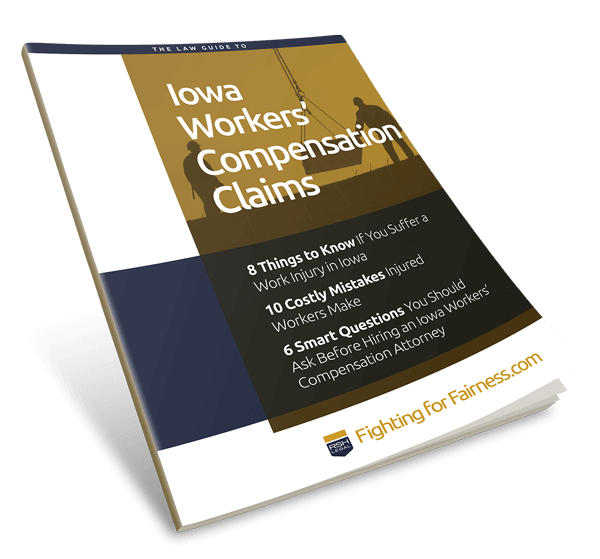Attention! Iowa’s Workers’ Compensation laws changed July 1, 2017. This article’s information may be out of date. Visit our Workers’ Compensation Page for more information.
We often get calls to our office from injured workers wondering if there are Iowa workers’ compensation claim deadlines or time limits to file a claim. Workers’ comp has some unique deadlines.
How Long Do You Have to Inform Your Employer of Your Work-Related Injury?
First, let’s talk about Iowa’s “notice to employers” requirement. Iowa law requires that an injured worker provide notice to their employer that they have suffered an injury. This notice must be given within 90 days of the injury.
It does not have to be a written notice to meet Iowa’s workers’ compensation claim deadline – you can inform your employer verbally of your injury. However, we recommend you do it in writing, and that you keep a copy of the written notice you provide for your own records. Notice should be given to a supervisor, not a co-worker.
The notice must include a statement both that you were injured AND that the injury was at work. You cannot just tell your boss you’re going to the doctor because your back hurts. If you suspect your back hurts because of your job, you have to tell your employer that you hurt your back AND that it happened at work.
When the 90 days starts for a workers’ compensation claim deadline depends on whether you suffer “traumatic” injuries that come on with a sudden event or accident, or “cumulative” injuries that came on over time. Figuring out the date a cumulative injury begins can be tricky. Generally, the injury date for a cumulative trauma injury is the date on which a reasonable employee would know:
1. That there was an injury;
2. That it was a work-related injury; and
3. That the injury affects the employee’s ability to work.
Even with these guidelines, you should speak to an Iowa workers’ compensation lawyer if you’re having difficulty pinpointing a specific injury date.
What is the Statute of Limitations for Iowa Workers’ Compensation Claims?
A statute of limitations is the final date that you have to either settle your claim, or file your claim with the Iowa workers’ compensation agency.
There are two different statute of limitations deadlines in workers’ compensation: a two year deadline and a three year deadline. Which deadline applies to your case depends on whether you received weekly workers’ compensation checks.
1. If you have not received any weekly benefit checks, you must file a claim within two years of the injury date.
You could have received medical benefits or mileage reimbursement from the insurance company, but these types of checks do not count as weekly benefit checks.
2. If you have received weekly benefit checks for either temporary or permanent disability, you must file a claim within three years of the date the last check was mailed – not the date the check was issued, but the postmarked date of the envelope that the check came in.
Again, getting your medical bills paid or reimbursed for mileage does not count as a weekly check to extend the statute.
These deadlines can be confusing, so if you aren’t sure how much time left you have to file a claim, give a work comp attorney a call.
If you believe you have waited too long to file an Iowa work comp claim, make sure to contact an attorney specializing in workers’ compensation claims anyway. Sometimes there is a valid legal exception and you could file your claim even if the deadline has passed. The only way you will know if one of these extensions applies to you is to speak with an Iowa workers’ compensation lawyer.
To learn more, call us at 1-319-774-1542 or visit our Iowa Workers’ Compensation page for more information.




